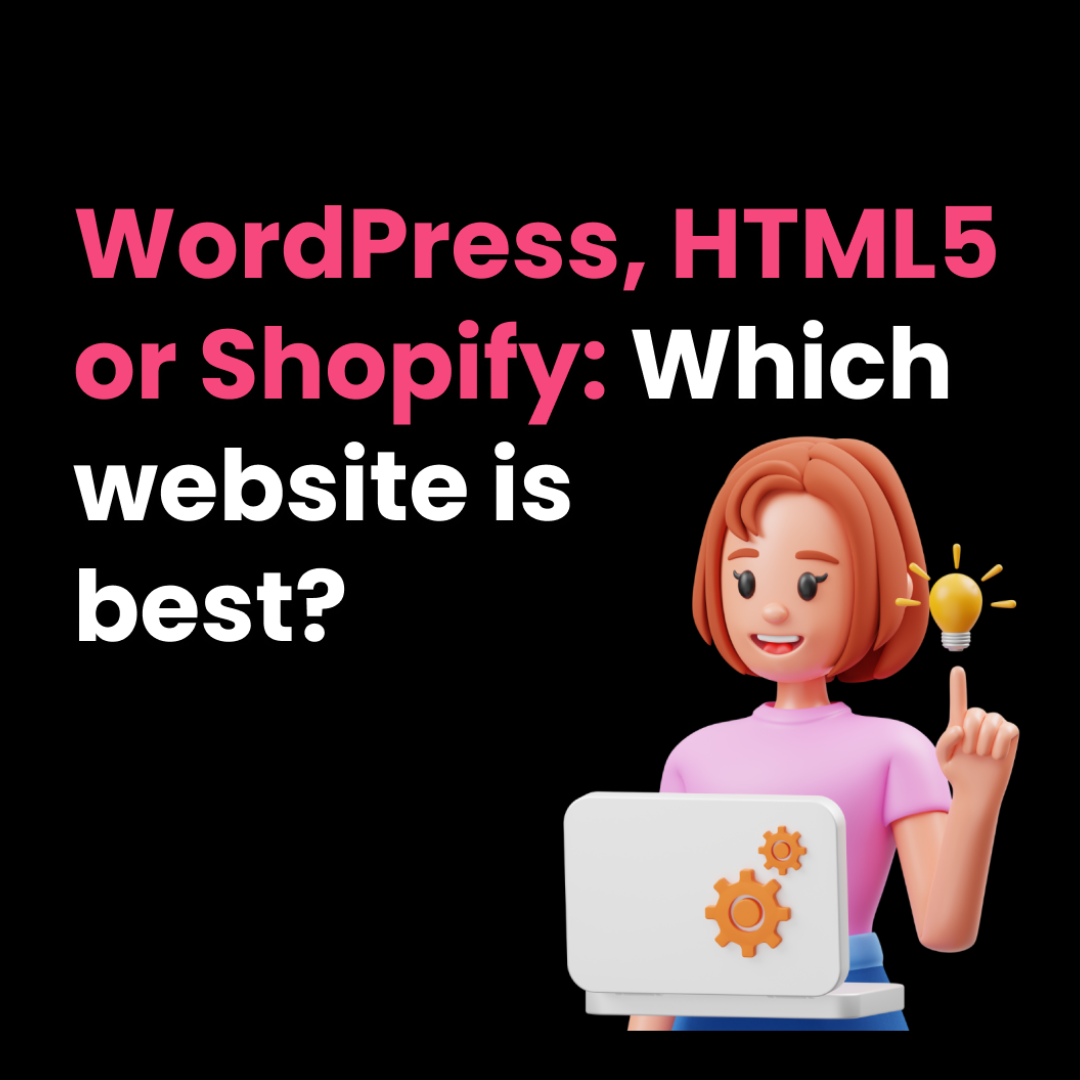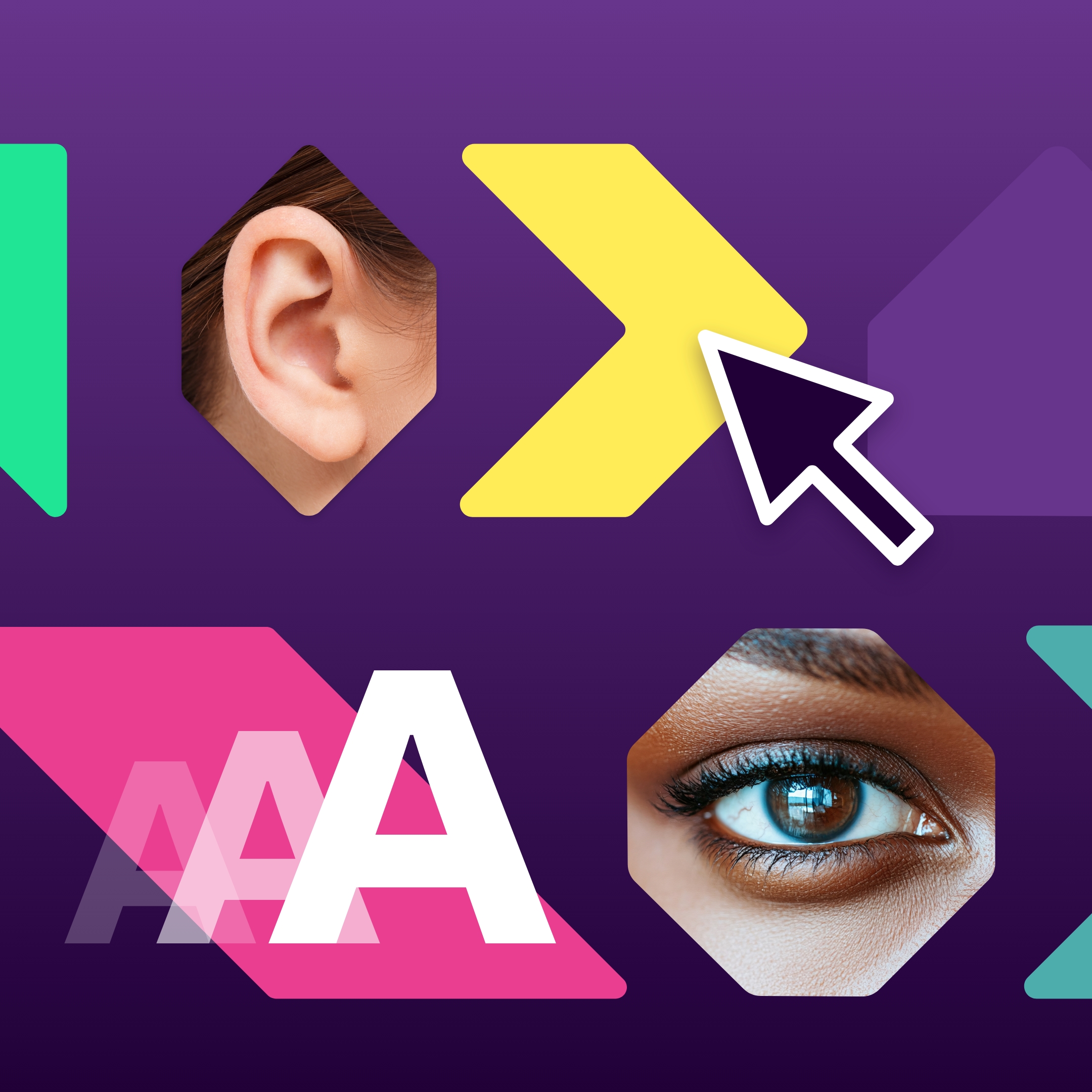If you want a new website, turning to a website design agency will get you the best results. But before you decide on your website’s look and feel, you must determine how you want it built.
You may want to sell products or require a platform you can easily update with content. There are many factors to consider, so understanding the core purpose of your website is essential.
At Trio Media, we build custom websites for e-commerce to B2B brands using Shopify, WordPress or HTML5. There are many other website builders/CMS’s out there, but we see these as the top three to choose from based on our client’s needs. But don’t take our word for it. Discover the benefits and limitations of each website below.
WordPress websites: best for content
In 2023, 45.8% of all websites on the internet use WordPress. This groundbreaking website builder and Content Management System (CMS) is used worldwide across all industries.
Pros
1. User-friendly CMS
In 2003, WordPress began as a blog publishing platform. Now, it’s grown to be a revolutionary CMS which is easy to use and navigate. You can easily edit pages, upload new blogs, adjust images and add videos in the backend. This is perfect for brands who create content regularly and want the freedom to post whenever.
Plus, more accessible content management will benefit your SEO strategy, mainly on-site SEO work.
2. Flexible and fully customisable
WordPress is open source, which means you can freely modify and distribute it to others. Because of this, you can customise your website design and how it functions. At Trio Media, we create custom WordPress websites from the ground up. Whatever you want, we’ll build a website made for you.
3. Includes lots of third-party plugins
WordPress offers over 60,000 free and paid plugins to improve the usability of your website. You can integrate SEO plugins such as Yoast, security plugins like Defender and other essential tools like contact forms and page builders. If you want custom functionality, a WordPress plugin will do just that.
If you’re an e-commerce business, plugins like WooCommerce allow you to set up your store, add payment and shipping options and sell any product.
4. Responsive design
Having a mobile-friendly website is a must. WordPress offers thousands of customisable themes that are responsive to all screen sizes. You also have the option to build your own themes, which is something Trio is an expert at. With that, WordPress is great for improving your user experience and time on site.
Cons
1. Possible security risks
As WordPress is open source, you may be at risk of potential hackers if you don’t properly manage your website. Avoiding this is possible – select quality plugins and themes and keep up to date on WordPress updates. Sounds hard? We offer an extensive WordPress hosting and maintenance service which covers updates, speed and security checks.
2. Slower site speed
WordPress offers plugins that add functionality to your frontend (e.g., page builders), backend (E.g., backup plugins) and both sides of your website, such as SEO tools. Your backend plugins won’t affect your website speed, but overloading your frontend can slow down your website.
Frontend plugins may create database requests, constantly run in the background and/or increase HTTP requests to a server, increasing load time. To minimise these effects, we’ll create a bespoke solution with quality plugins that won’t slow website speed.
HTML5 websites: best for security & site speed
A HTML5 website uses HTML5 markup language to create versatile, multimedia-rich brochure websites. These websites offer great customisation, SEO advantages and responsive mobile design.
Pros
1. Faster speed time
HTML5 websites allow web developers to easily incorporate audio and video elements into your web pages. There is no need for third-party plugins to play multimedia content, but use audio and video tags instead. You’ll achieve faster loading times and an improved user experience with better support and zero frontend plugins.
2. Responsive across browsers & devices
Choosing a HTML5 website means you’ll benefit from responsive designs that adjust screen sizes and resolutions to devices. A mobile-friendly website will also help you show up higher in search results, enhancing your SEO strategy.
All major browsers, including Chrome, Safari and Firefox, support HTML5 websites. It can work with older browsers like Internet Explorer, too. This means that your users will have a seamless experience on your site, no matter the device or browser they’re on.
3. Secure
HTML5 offers robust website security as it eliminates third-party plugins and the associated vulnerabilities that appear when a plugin isn’t supported during a website’s life cycle. Plus, a HTML5 website has no backend database, which means there is nothing for a hacker to infiltrate.
4. Highly customisable
Web developers can create highly customised HTML5 designs and features tailored to your needs. Combining this intuitive design with bold multimedia helps your website stand out, ultimately drawing users in to explore what you offer. At Trio, we create bespoke HTML5 websites for all industries, from simple, seamless experiences to rich media-driven websites.
Cons
1. Not as user-friendly
HTML5 is not a content management system (CMS) like WordPress. But this isn’t a deal breaker, though. At Trio, we integrate Surreal, an open-source CMS, with our HTML5 sites. This gives people a visual builder to make changes but has limited functionality in what you can do. For example, Surreal has no drag-and-drop functionality, but you can change copy, page title and meta descriptions. If you want to make more significant changes than this, you’ll need an HTML5 specialist to edit the code.
As part of our maintenance packages, we’ll make these updates so you’re not left with an outdated website.
2. Limited functionality
HTML5 is commonly used to build brochure websites. These types of websites are made to look similar to printed brochures and aim to advertise their products/services with compelling content. Because of this simplicity, HTML5 websites don’t offer as much functionality to serve other purposes, unlike an e-commerce platform.
Shopify websites: best for e-commerce
Shopify is one of the biggest e-commerce platforms on the internet. With our help, you can set up an online store that brings in traffic and sells your products.
Pros
1. Easy to use
Shopify is, without a doubt, the most accessible e-commerce platform out there. You can be a website novice and find Shopify simple to use. The functionality is very user-friendly, allowing you to run your business online without a sweat. Plus, the back end covers everything you need. From adding VAT to writing product descriptions, Shopify has you covered.
2. Supports all payment processors
Nowadays, people rely on mobile payment services instead of cards. Just think, cards may become the next chequebook (RIP)…
Shopify offers multiple payment integrations, including Apple Pay, Google Pay, PayPal and Bitcoin. With more payment options, you’ll streamline the buying journey and sell to anyone globally.
3. Fully-hosted and secure
Shopify doesn’t require a host as it’s a fully hosted platform. This means you won’t need to pay extra for hosting, saving you money in the long run. Plus, Shopify is a secure site that integrates various safety measures to ensure compliance.
4. Offers extensive apps
For an e-commerce business to run, your website will need shipping, inventory management, product variants and customer support. As Shopify is out-of-the-box, you can customise the platform with thousands of apps which are easy to use.
Cons
1. Costs add up
Integrating lots of apps into your Shopify website can only mean one thing. Big monthly bills. You must pay a monthly subscription for additional apps, so beware when choosing what you want. At Trio, we’ll help you navigate this and find the most cost-effective solution.
2. Shopify support may not always solve your problems
You may not get a clear solution if you have technical issues and turn to Shopify support. You may resort to technical forums for an answer, which is time-consuming. Our team will be available to answer any support questions and implement associated solutions as part of our maintenance plans. It’s always best to rely on your local Leeds marketing agency for quality work!
Is WordPress or HTML5 better for SEO?
HTML5 and WordPress are both great for SEO. WordPress allows for SEO plugins, customisable themes and content-heavy websites. HTML5, on the other hand, doesn’t require plugins, meaning it offers excellent speed, which is crucial for technical SEO.
HTML5 has a better SEO edge, but it depends on whether this website builder meets your requirements.
Summary: Which is the best website builder?
The best website is one which meets all your needs. Not every website builder can do this, so breaking down your goals and speaking to the experts is essential. For e-commerce brands, your best bet is Shopify. HTML5 or WordPress will work excellently for any other sector, but the final decisions depend on usability and customisation.
Need a website design agency? Contact Trio Media
Creating a website yourself is possible. But why waste your precious time when Trio Media can do everything for you? Our team of web designers, developers, SEO experts and copywriters are here to support you through every step.
If you want a high-performing website, contact our team or call us at 0113 733 2020.



